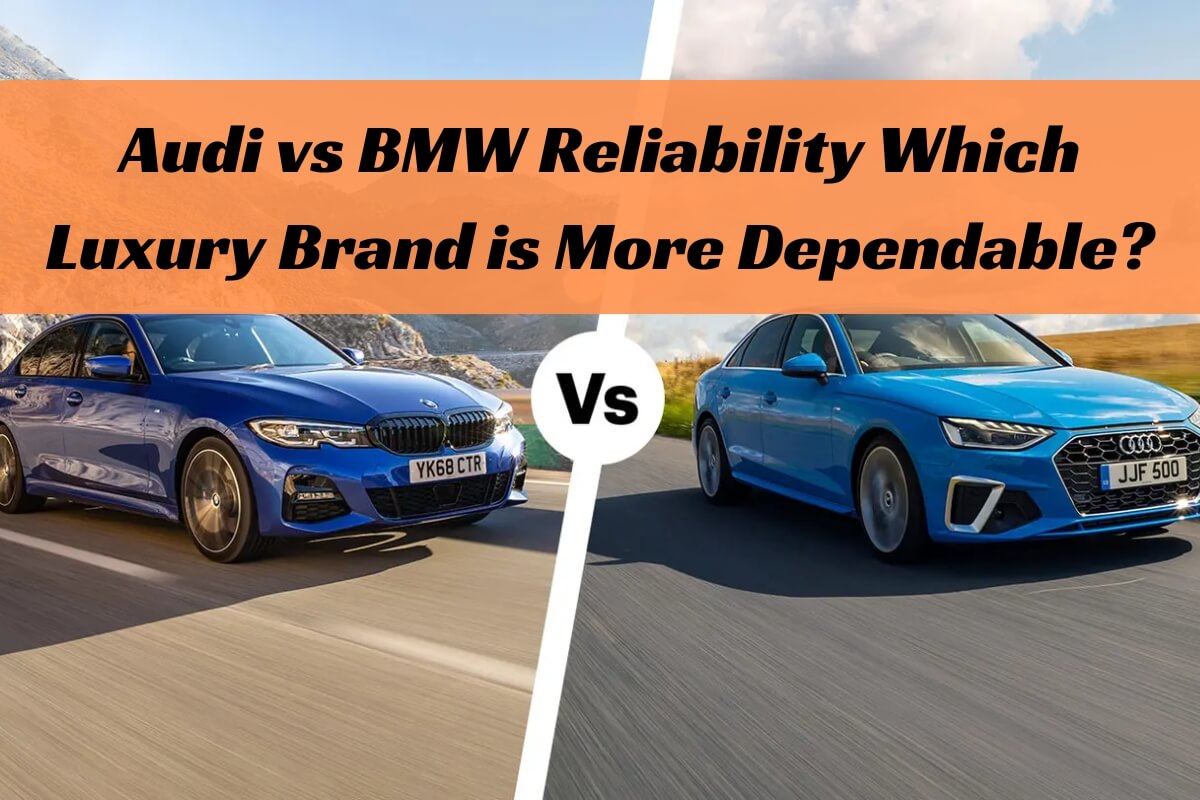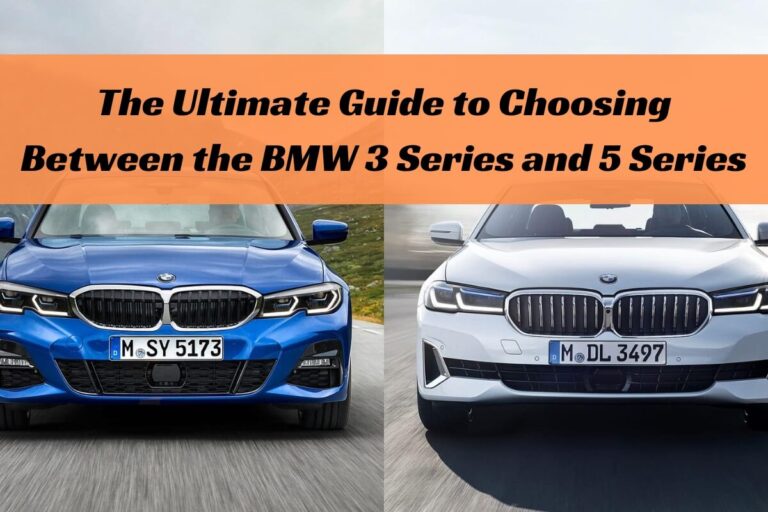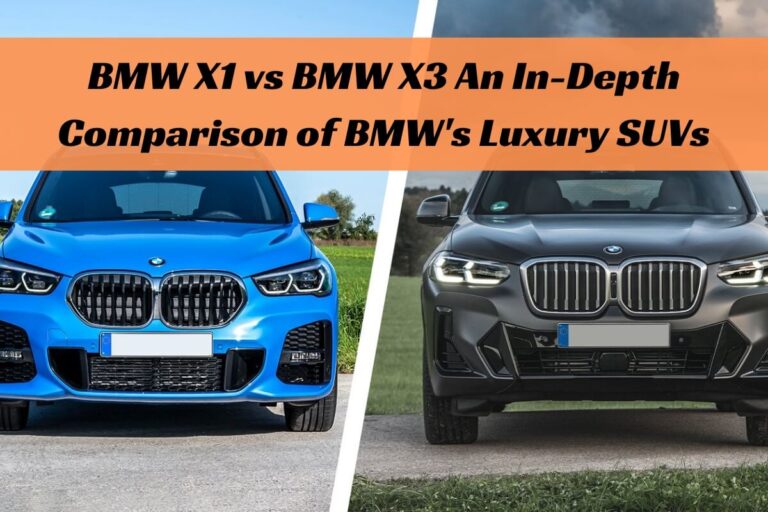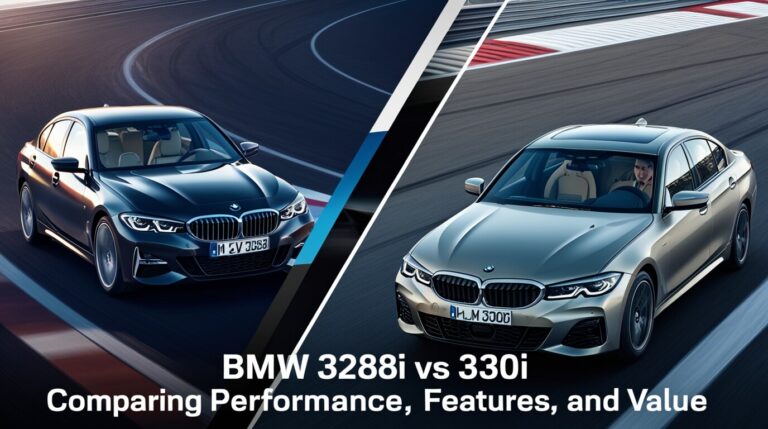
When it comes to luxury vehicles, few brands carry the same prestigious cachet as Audi and BMW. These German automotive giants have spent decades refining the art of upscale performance, cutting-edge technology, and meticulous craftsmanship. But along with all the indulgent amenities, premium quality materials, and breathtaking driving dynamics comes an important question: Which brand builds the more reliable luxury vehicles – Audi or BMW?
In comparing overall reliability, BMW edges ahead of Audi by a small margin according to the latest data from leading vehicle assessment organizations. With better safety scores, fewer issues reported by owners, lower maintenance costs, and a stronger warranty, BMW proves to be the slightly more dependable luxury car choice.
However, this superiority isn’t by a huge margin. Both brands produce extremely well-built, rigorously-engineered vehicles designed to deliver an exceptional driving experience mile after mile. To decide which is truly the more reliable luxury brand for your needs, we need to dig into the specifics like safety ratings, repair costs, warranty coverage, expert reliability assessments, and long-term ownership.
Safety Ratings: How Audi and BMW Fare in Crash Tests
When evaluating a vehicle’s overall dependability and peace of mind, safety should be one of the top priorities. Fortunately, both Audi and BMW models regularly earn top marks from leading safety authorities:
Insurance Institute for Highway Safety (IIHS)
The nonprofit IIHS is one of the preeminent organizations for assessing vehicle safety through rigorous crash testing. In their latest ratings:
- Audi had 10 models earn a 2022 TOP SAFETY PICK award, with 7 of those receiving the highest TOP SAFETY PICK+ designation for superior safety performance.
- BMW had only 3 models earn a 2022 TOP SAFETY PICK award, with none reaching the TOP SAFETY PICK+ level.
Some standout Audi safety winners include the A6 sedan, Q5 SUV, and e-tron electric models – demonstrating Audi’s commitment to safety across their lineup. While BMW still produces very safe vehicles, Audi holds the edge in this particular IIHS testing cycle.
National Highway Traffic Safety Administration (NHTSA)
The NHTSA is another highly-respected source for crash safety data and ratings in the United States. In their latest assessments:
- Several Audi models like the A3, A4, Q5, and Q8 earned an overall 5-Star safety rating, the highest possible score.
- Top BMW safety performers included the 3 Series, X3, X5, offering 5-Star overall ratings from NHTSA as well.
Head-to-Head Safety Ratings
So while both luxury brands produce outstandingly safe vehicles, Audi’s lineup does seem to have a slight edge over BMW’s based on the latest IIHS and NHTSA data. This robust crash protection contributes greatly to the overall reliability and dependability of a vehicle.
Advanced Safety Features: Keeping You Secure on the Road
In addition to anatomy-crunching crash tests, another key aspect of safety and dependability is the availability of advanced driver assistance technologies. These intelligent safety systems use sensors, cameras, and computing power to provide an extra set of “eyes” to help avoid accidents before they happen.
Both Audi and BMW equip their vehicles with a robust suite of advanced safety features like:
- Blind spot monitoring
- Lane departure warning
- Forward collision warning with automatic emergency braking
- Rear cross-traffic alert
- Adaptive cruise control
However, Audi offers one unique feature that provides extra peace of mind – a night vision assistant which uses thermal imaging to detect pedestrians or animals in the dark that may be missed by the driver’s eye or standard cameras and sensors.
BMW does not offer an equivalent thermal night vision system as of now, putting Audi ahead for this important safety advantage that improves reliability and dependability in low-light conditions.
Warranty Coverage: Audi vs BMW Peace of Mind
When it comes to costlier luxury vehicles like Audis and BMWs, a robust warranty can provide invaluable financial protection and peace of mind for owners. So how do the two German brands stack up?
New Vehicle Limited Warranties
For new vehicle purchases, both Audi and BMW provide:
- 4-year/50,000 mile limited vehicle warranty
- 12-year unlimited mile warranty against corrosion perforation
This demonstrates competitive and confidence-inspiring warranty coverage for new luxury car buyers.
Where BMW gains a clear edge, however, is with their complimentary scheduled maintenance coverage:
- BMW provides 3 years OR 36,000 miles of free factory-recommended maintenance
- Audi only covers the first scheduled maintenance visit
So BMW’s more generous complimentary maintenance can potentially save owners thousands over the first few years of ownership.
Certified Pre-Owned Coverage
Both Audi and BMW also offer certified pre-owned (CPO) programs that add valuable coverage onto any remaining new vehicle warranty. Their CPO warranties include:
- Up to 1 year/unlimited miles of coverage after original warranty expires
- Roadside assistance included in CPO warranty period
So whether new or CPO, BMW retains an advantage by providing longer periods of complimentary maintenance – which reduces out-of-pocket costs and generally improves reliability over the ownership experience.
Maintenance Costs: The Hidden Expenses of Luxury Ownership
Speaking of maintenance, keeping up with scheduled service is absolutely critical for ensuring a vehicle’s longevity and reliability. But repairs and maintenance can add up quickly for luxury brands like Audi and BMW.
According to research firms that study and estimate maintenance costs:
- Over the first 10 years, the average Audi costs around $12,400 to maintain and repair
- For a BMW, estimated costs are higher at around $17,800 over a decade
That’s a sizable $5,400 difference in projected maintenance expenses favoring Audi. However, much of that gap can be closed thanks to BMW’s included maintenance during the first 3 years.
Both brands require premium service and OEM parts/fluids which keep costs high. Following the manufacturer’s recommended maintenance schedule is absolutely crucial to maximize reliability and minimize unexpected repairs.
Reliability Ratings: What the Experts Say About Audi and BMW
Aggregate ratings on reliability from major assessment firms provide some of the most clear-cut data for comparing Audi to BMW dependability. And according to two of the most well-respected sources, BMW holds a distinct lead:
J.D. Power Vehicle Dependability Study
This annual industry benchmark from J.D. Power examines problems experienced by owners of 3-year-old vehicles across the auto industry. In their most recent study:
- BMW ranked 6th out of 33 brands with just 123 reported problems per 100 vehicles
- Audi ranked lower at 18th with a higher 136 reported issues per 100 vehicles
While both brands score better than the industry average of around 180 problems per 100, BMW’s advantage is clear.
Consumer Reports Reliability Verdicts
The expert editors at Consumer Reports also study real-world reliability data from millions of vehicle owners to provide reliability ratings and rankings for brands and models. In their latest assessments:
- BMW vehicles scored an average 3/5 for predicted reliability
- Audi vehicles scored lower at 2/5 on average for projected dependability
So while Audi produces premium, well-engineered vehicles, brands like BMW demonstrate a clear lead when it comes to producing fewer issues according to both owner surveys and expert analysis.
Long-Term Ownership: Audi vs BMW Dependability Over Time
When you’re making an investment in a luxury vehicle, you want to ensure it provides a reliable, trouble-free experience for as long as possible. So let’s examine how Audi and BMW models hold up over higher mileage ownership:
Engineering and Build Quality
Both Audi and BMW are German brands renowned for their impeccable engineering and robust vehicle construction. However, BMW has long placed a core emphasis on rear-wheel-drive platforms and precise driving dynamics that require extra mechanical refinement.
As a result, BMW tends to get higher marks from experts and owners for overall mechanical reliability and fewer issues with integrated vehicle systems as miles accumulate.
Common Issues for High Mileage Audis and BMWs
No vehicle is perfect, and even meticulously-built luxury cars can develop problems after years of service. Some commonly-reported issues for higher mileage examples include:
Audi
- Oil leaks and excessive oil consumption
- Electrical bugs and failing modules/sensors
- Air suspension and transmission problems
BMW
- Oil leaks, especially from gaskets and seals
- Cooling system problems and overheating issues
- Suspension component wear and failure
- Electronics glitches with modules and control units
While neither brand is immune to high mileage woes, BMW does seem to fare slightly better overall based on owner reports and third-party analysis. Proper maintenance and adherence to repair schedules is critical for maximizing long-term reliability.
Long-Term Costs and Depreciation
When you add up all the repair, maintenance, and operating costs over a vehicle’s full lifespan, luxury brands like Audi and BMW command a premium over mainstream models. However, BMWs do hold an advantage in terms of slower depreciation over time.
According to analysis by firms like Edmunds and ALG, BMWs tend to retain around 5-10% more of their original value after 5 years compared to Audi models. This better resale value helps offset the higher maintenance costs associated with BMWs.
Ultimately, both represent significant long-term investments compared to non-luxury brands. But BMW’s combination of strong engineering, slightly lower repair costs, and higher residual values position it as the smarter long-term choice for reliability and value retention.
Conclusion
When it comes to the crucial factor of reliability and dependability, BMW holds a small but notable lead over Audi among luxury vehicle brands. From superior safety ratings and warranty coverage, to fewer reported issues and lower operating costs, BMW models demonstrate an edge in delivering a worry-free ownership experience.
However, the gap is not enormous. Audi builds exceptional luxury vehicles with impressive engineering and leading-edge technology. The brand’s vehicles perform admirably in reliability assessments as well. Audi does have an advantage with lower projected maintenance costs over a decade of ownership.
For many luxury buyers, the decision may come down to personal priorities like brand affinity, model preferences, and willingness to pay a bit more for maximum long-term dependability and value retention. But if reliability is the top concern, BMW’s consistent excellence gives it the slight upper hand between these two German automotive icons.






